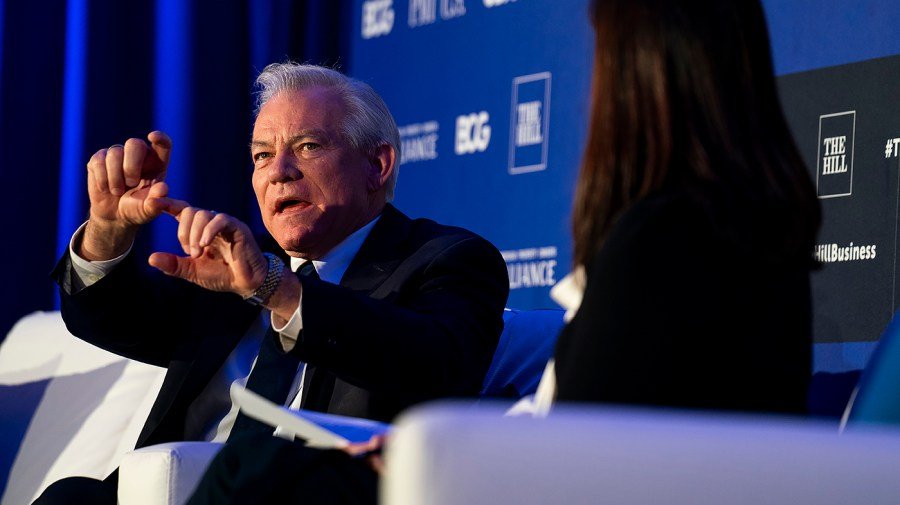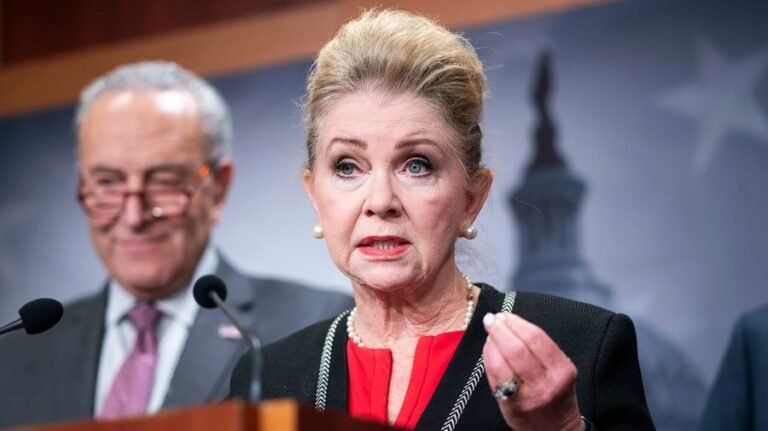
Rep. David Schweikert (R-Ariz.) said Wednesday that the growing U.S. national debt will make the government more vulnerable to being pressured by the bond market, allowing it to effectively “run the country.”
“Look, we’re on the cusp of deciding that the world debt markets will run the country. I mean, let’s be brutally honest. I don’t think the equity markets are as good a tell,” Schweikert, who sits on the House Ways and Means Committee, said during The Hill’s “Invest in America” event Wednesday.
“It’s bond markets and debt markets,” he added.
In recent weeks, some business leaders have expressed similar concerns, stating that the government’s budget deficits and rising debt are issues that will rattle bond markets down the line.
“It’s a big deal, you know it is a real problem, but one day … the bond markets are going to have a tough time. I don’t know if it’s six months or six years,” JPMorgan Chase CEO Jamie Dimon said during a Monday interview with Fox Business Network’s “Mornings with Maria.”
“The real focus should be growth, probusiness, proper deregulation, permitting reform, getting rid of blue tape, getting skills in schools, get that growth going — that’s the best way,” Dimon said.
The bond market has experienced a period of fluctuations since early April as President Trump rolled out his tariffs aimed at both allies and adversaries. Trump’s “big, beautiful bill,” which passed the House last month, has also shaken the financial markets given the trillions of dollars it is expected to add to the debt.
Bond traders have grown concerned about the pressure higher U.S. debt could put on interest rates, and Trump has cited bond market turmoil as a reason behind his April decision to ease many of his “Liberation Day” tariffs.
The yield on the 30-year Treasury was north of 5.1 percent last week and was trading around 4.9 percent Wednesday.
Schweikert said Wednesday that demographics are the “driver” of the country’s debt.
Trump’s massive legislative package includes an extension of the president’s 2017 tax cuts, although the legislation could add $2.4 trillion to the U.S.’s deficit over the next 10 years, the new estimate from the Congressional Budget Office (CBO) said.
Schweikert, a fiscal hawk, voted for the legislation, but he has said that he has concerns about the package.
“I’m intensely concerned that if the term premium on interest rates continues to either stay where it’s at right this moment or expand, almost every bit of good we’re doing with adding expensing, research and development expensing, many of these things will be consumed in the economy with higher interest rates,” the Arizona Republican said.
“There’s this game of, well, ‘I need to make people happy right now,’” Schweikert said on Wednesday. “But the reality of it is, unless you’re convincing the bond markets and the fact that how much borrowable money is in the world, when Germany’s back in the debt markets, you see what’s going on along and under the curve in Japan, China’s actually still binging on debt. We seem to be avoidant of big-boy economics.”





